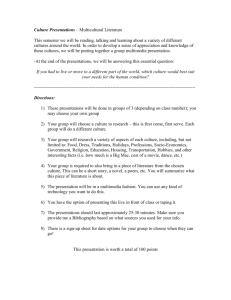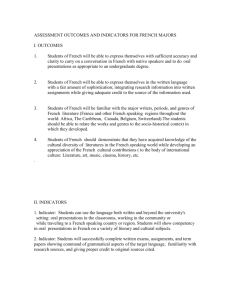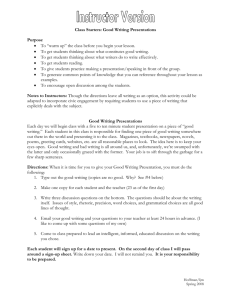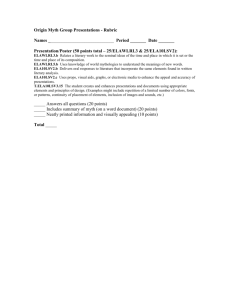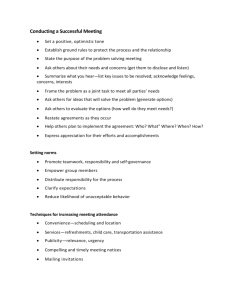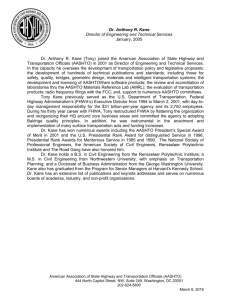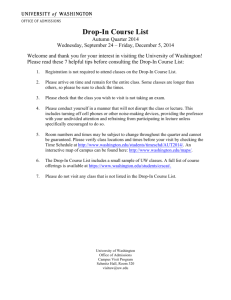topicsinfamilybusiness
advertisement
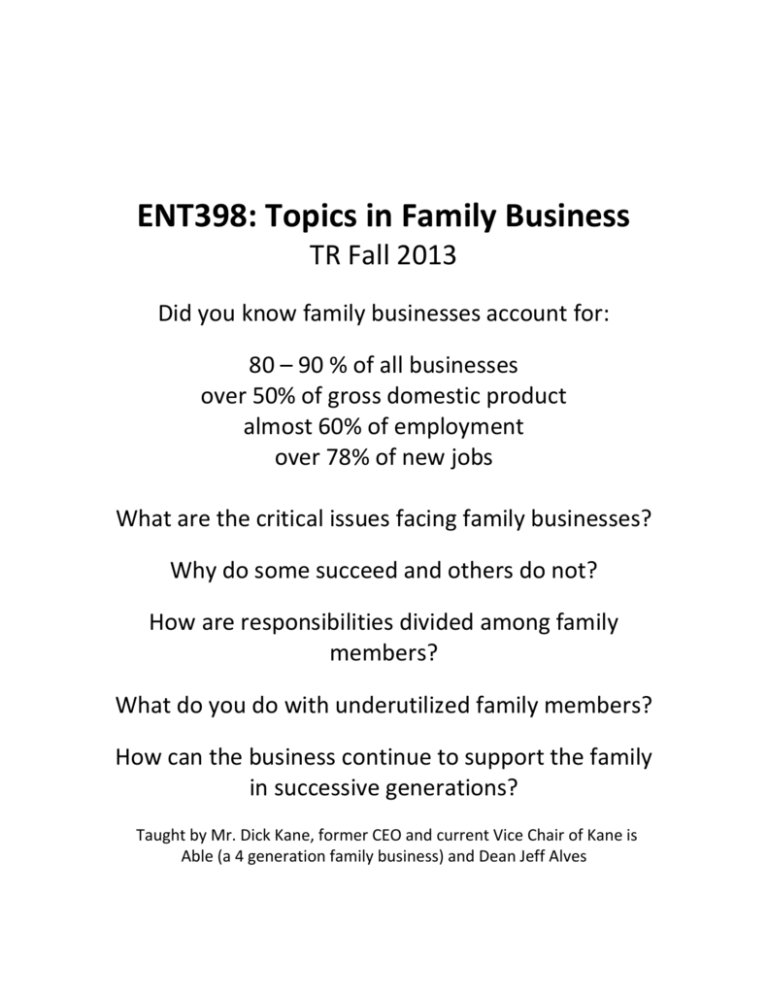
ENT398: Topics in Family Business TR Fall 2013 Did you know family businesses account for: 80 – 90 % of all businesses over 50% of gross domestic product almost 60% of employment over 78% of new jobs What are the critical issues facing family businesses? Why do some succeed and others do not? How are responsibilities divided among family members? What do you do with underutilized family members? How can the business continue to support the family in successive generations? Taught by Mr. Dick Kane, former CEO and current Vice Chair of Kane is Able (a 4 generation family business) and Dean Jeff Alves ENT398 Fall 2013 Instructors: Richard P. Kane Executive in Residence J. Sidu Business School Family Business Forum Wilkes University Phone: 570-408-2116 richard.kane@wilkes.edu Dr. Jeffrey R. Alves Dean: J Sidu Business School Wilkes University Phone: 570-408-4702 Jeffrey.alves@wilkes.edu Topics in Family Business Text: Required Family Business – Ernesto J. Poza 4th Edition 2013 – Mary S. Daugherty South-western Cengage Learning ISBN-13: 978-1-285-05682-1 ISBN-10: 1-285-05682-5 Also available: ebook Purpose and Scope of the Course: Family controlled businesses (both private and publicly-traded) are characterized by unique challenges that threaten their distinct core competencies. The challenges are primarily the result of issues presented by the interaction of family, management and ownership- particularly where the family wishes to perpetuate its influence and/or control from generation to generation. Family firms seem to be as agile in one generation as they are fragile across generations. The course will explore and analyze family business continuity challenges and best management, family and governance practices for the effective leadership of family-owned businesses. The focus is on communication skills, management, governance, and family/business leadership skills. The course will be taught primarily through live and written cases, discussions, lectures and a study/consultation experience with family businesses. Course Objectives: Upon completion of this course, you should be able to: a) Learn why a family firm is a unique and distinctive form of organization. (Business Knowledge) b) Increase your understanding of family firms and their role in the economy. (Business Knowledge) c) Increase your understanding of the major issues and problems facing family firms as well as how these issues and problems can be solved to improve family business performance. (Critical Thinking and Ethics) d) Improve your team building and writing skills. (Written Communication) e) Enhance your opportunities for assessing your future entrepreneurial and managerial capabilities in a family business context. (Business Knowledge) Sensitivities Objectives: To demonstrate to the students an appreciation for the ethical and global impact that Family Businesses have on the global economy with regards to growth and employment. Competencies Objectives: Through the teaching and assignments of the Family Business course it will develop both written and oral skills along with enhancing team building and leadership qualities. The case studies will help develop data gathering, critical, and analytical thinking. This Family Business Course ENT398 is meant to be extremely interactive and class participation is highly encouraged. The course will be made up of selective content of the text book, case studies and guest speakers. The Text Book is an important foundation for this class. We will focus on select content. Case Studies will be used both from the textbook and also Harvard case material. Guest speakers will be presenting during the semester to describe in detail real life experiences. Family Business Forum: Students will be required to attend Family Business Forum events during the semester. Two-page papers critiquing the presentations will be required and will account for 10% of your overall grade. Family Business Presentation: Students will be required to select a Family Business and write a paper on your selection. You are free to choose any Family Business (including your own family business), present day or past business. A written paper will be required along with it being presented to the class for discussion. Your presentation on a Family Business should include the following: 1. Description of the business, history, founding date, major products /services. 2. Description of the organization of the family business, including systems, structure and strategy. Describe in detail the culture of the company. 3. Identify the role of the family in the business (roles, responsibilities and relationships). 4. Current ownership structure, board, family council, family office. 5. Long-term family business plan, including succession and ownership plans. Discuss specifically how these long-term plans will be implemented over time. 6. What problems have been overcome (business and family). What challenges are to be dealt with (business and family). 7. How is communication, conflict, sibling rivalry dealt with? 8. What is your opinion of the outcome of the future? Case study presentations will be handed in on 19 Nov 2013. Oral presentations: Each student will present their case (15-20 minutes) to the class during Nov-Dec. There will be a question & answer session after each presentation. Presentations will account for 20% of your overall grade. Grading: Class Participation Critique of the Family Business presentations Mid Term essay Family Business Presentation Final Essay 30% 10% 20% 20% 20% Course Calendar: (Tentative) 8/27 8/29 9/3 9/5 9/10 9/12 9/17 9/19 9/24 9/26 10/1 10/3 10/8 10/10 10/15 10/17 10/22 10/24 10/29 10/31 11/5 11/7 11/12 11/14 11/19 11/21 11/26 11/28 Introductions/ Review syllabus Chapter 1 The Nature, Importance, and Uniqueness of the Family Business Chapter 2: The Family Dynamics Challenge *Students pick a family business to write their paper on.* Case 1: The Binghams & The Louisville Courier –Journal The Blethens and The Seattle Times Chapter 3: The Ownership Challenge Case 2, Case 3 Chapter 6: Succession & Selection of the Next Generation Chapter 7: Succession & Transfer of Power Case 4, Case 5 Chapter 8: Change, Adaptation, & Innovation: The Future of Family Business Innovation/Culture/ Loyalty based employer versus Accountability based employer. Mid term results, progress report on assignments Harvard Business Case Fall Recess Chapter 9: Boards of Directors, Family Councils, Family Offices Chapter 10: Strategic Planning Case 6, Case 7 Chapter 11: Estate Planning Case 8, Case 9 Case 10, Case 11, Case 12 Tour of Martin Guitar est. 1833 Nazarath Pa Chapter 12: The Owners Plan Chapter 14: Key Nonfamily Management Case 13, Case 14, Case 15 Assignments Due Presentation Presentation Thanksgiving 12/3 12/5 Presentation Last class, Wrap-Up/ Reflections


